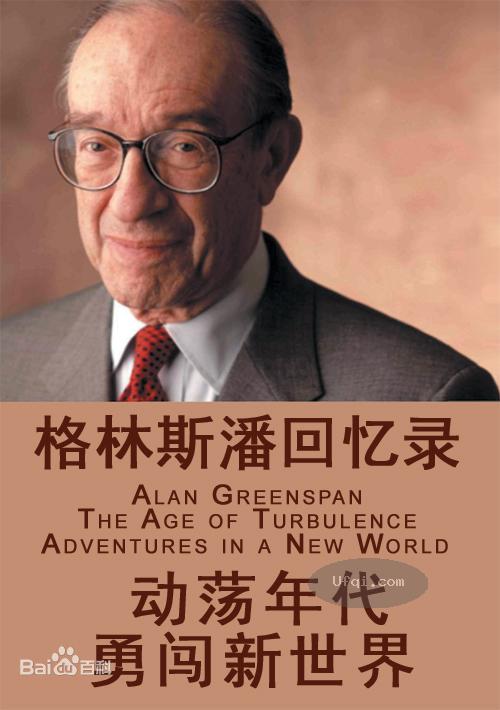


2023-05-29 , 8883 , 104 , 144
美联储主席艾伦格林斯潘回忆录--动荡年代:勇闯新世界-the age of turbulence-58
DOWNTURN
Soon after, Time magazine quoted chief political adviser Karl Rove calling the trigger concept "dead on arrival with this President."
And when President Bush formally unveiled his 2002 budget plan in February it incorporated the $1.6 trillion tax cut just as he had proposed it during the campaign.
The Democratic leadership rejected the trigger concept as well.
"You don't need a trigger if you limit the size of a tax cut/' said Senate minority leader Daschle. In early March, the Republican House leadership decisively blocked a trigger amendment from reaching the floor, and the House passed the Bush tax cut virtually unchanged.
When the debate shifted to the Senate, triggers never drew any additional support.
In the end, Bush had his victory. At $1.35 trillion, the tax cut that ultimately took shape was smaller than he had wanted, about halfway between the Republican and Democratic plans.
But it was structured a la Bush as an across-the-board cut.
The legislation embodied only one major feature that had not been part of the original plan: a taxpayer rebate designed to give back nearly $40 billion of the 2001 surplus. It mandated that each working household was to receive up to $600, depending on how much income tax it had paid the year before.
Congress approved the "Bush rebate," as it came to be called, as a short-term stimulus aimed at jolting the economy from its stupor.
"American taxpayers will have more money in their pockets,"
the president declared,
"and the economy will receive a well-deserved shot in the arm."
He signed the tax cut into law on June 7—record time for a major budget initiative. I was willing to be optimistic about the legislation's effect.
It would work down the surpluses before they became dangerous.



And though the tax cut had not been designed as a short-term stimulus—the economy hadn't needed one when Bush's people conceived it during the campaign—it could prove serendipitously to have that effect. The timing was now right.
223
My regret that the legislation had passed without triggers, however, was soon to become a lot more intense. Within weeks, it turned out that I'd been wrong to abandon my skepticism about the ongoing surplus.
Those rosy ten-year forecasts were in fact utterly mistaken.
Even before the Bush rebate checks were in the mail, suddenly and inexplicably federal revenues plunged. The flow of personal income tax payments to the Treasury as seasonally adjusted by the Department of Commerce, started to come up billions of dollars short.
The vaunted surplus, still going strong when Bush signed the tax cut in June and forecast to continue for many years, was effectively wiped out overnight.
Starting that July, red ink was back to stay.
Our best statisticians got blindsided by this change; it took budget experts many months, tabulating tens of millions of tax returns, to piece together what went wrong.
The revenue shortfall was evidently a reflection of the stock market's broad, ongoing decline. (Between January and September 2001, the S&P 500 lost more than 20 percent of its value.)
This caused a sharp fall in taxes on capital gains and the exercise of stock options—a decline far more abrupt than the experts had forecast.
Just as the bull market of the tech boom had generated the surplus, the post-dotcom bear market took it away.
How could the forecasts have been so colossally wrong? The mildness of the economic downturn had fooled the tax statisticians into expecting a gentler drop in receipts. But by 2002, the extent of the collapse was evident in the numbers. In January 2001, the CBO had estimated total receipts at $2,236 trillion for fiscal year 2002. By August 2002, that figure had shrunk to $1,860 trillion—a $376 billion downward revision in eighteen months.



UfqiLong
Of that money $75 billion reflected the Bush tax cut and $125 billion the weakening of economic activity. The other $176 billion, a startlingly large sum, reflected what budgeters call technical changes—code language for items that cannot be explained by what is going on in the economy or on Capitol Hill, such as blown estimates of taxes from capital gains.
That September, Bob Woodward came to my office to interview me on the state of the economy.
He was preparing a new chapter for the paperback edition of Maestro, his bestseller about me and the Fed.
224
DOWNTURN
I told him I was puzzled by the course the 2001 recession was taking—it was like nothing I'd ever seen. Following December's sharp break in confidence and the significant decline in stock prices through the summer, I'd steeled myself for a marked downturn in GDP.
Industrial production was off 5 percent during the year. GDP, however, held steady. Instead of being in a deep valley, we were on a plateau. (Indeed, it would turn out that the economy actually eked out a slight expansion for the year.)
The shallowness of the recession looked to be a consequence of global economic forces that had driven long-term interest rates lower and ignited a sharp rise in home prices in many parts of the world.
In the United States, homes had increased in value so much that households, feeling flush, seemed more willing to spend. That, coupled with underlying productivity growth, appeared to have endowed the American economy with a whole
new degree of buoyancy.
So, said Woodward, trying to sum up, "maybe the story of the economy this year is the disaster averted rather than the downturns."
"It's too soon to tell," I answered. "Until the whole thing settles down into a boring pattern, you can't know."
The conversation was not much different from a dozen other background sessions I'd held with reporters in the course of the summer—
except for the timing.
It was Thursday, September 6, just before I was to leave for an international bankers' meeting in Switzerland. The date on the airplane ticket for my return was Tuesday, September 11.
225
(未完待续, To be contd)



🔗 连载目录
🤖 智能推荐



